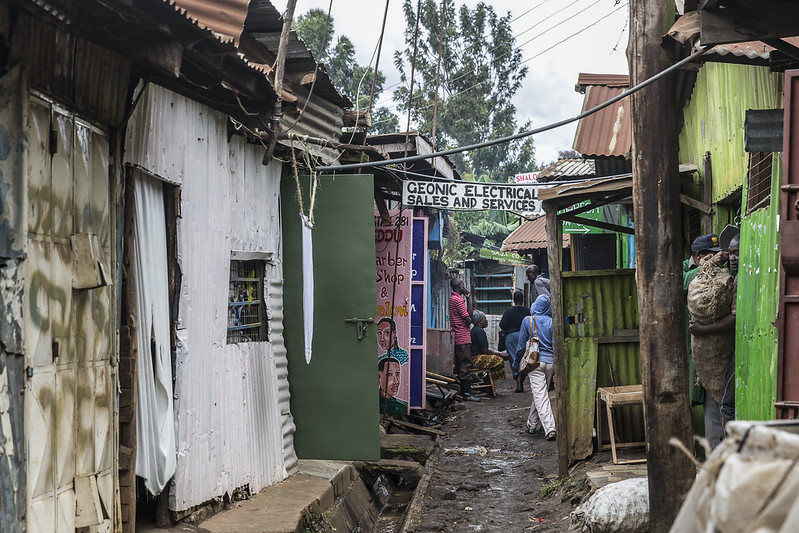Lack of USAID and Tuberculosis in Kenya
 Kenya is experiencing a resurgence in tuberculosis (TB). Thousands of Kenyans have lost access to public health care regarding Tuberculosis testing and treatments in the last month since the Trump administration eliminated foreign aid. The aid freeze went into effect on January 20, Inauguration Day. Many Kenyans have taken tuberculosis tests before the aid freeze but unfortunately have not received results due to the health program cuts. Tuberculosis is the deadliest infectious disease; in 2023 alone, 1.25 million died from TB. Half of the international donor funding for TB research and treatment came from the United States.
Kenya is experiencing a resurgence in tuberculosis (TB). Thousands of Kenyans have lost access to public health care regarding Tuberculosis testing and treatments in the last month since the Trump administration eliminated foreign aid. The aid freeze went into effect on January 20, Inauguration Day. Many Kenyans have taken tuberculosis tests before the aid freeze but unfortunately have not received results due to the health program cuts. Tuberculosis is the deadliest infectious disease; in 2023 alone, 1.25 million died from TB. Half of the international donor funding for TB research and treatment came from the United States.
The U.S. personally funded TB Essentials for Kenya. With the loss of financing, public health programs have shut down, leaving many undiagnosed and suffering. Tuberculosis is fully treatable, yet with the lack of international funding, the entire program, including research, diagnostics and successful treatment, has been ceased.
Unaffordable Care
Many Kenyans live below the poverty line. According to the UNDP report, 36% of them live below the national poverty line. This percentage is living off of less than $1 a day. This poverty rate prevents many Kenyans from obtaining basic necessities and creates many health issues. In the case of the resurgence in tuberculosis, this poverty rate is detrimental for many. A TB test can cost more than $80 and is highly inaccessible to Kenyans—the U.S.-funded testing for Kenyans and transportation for the movement of medical supplies and prescriptions, according to The New York Times. Most importantly, the U.S. paid for data management on the resurgence. TB treatments require long-term intense medication that often makes the infected feel dejected. Without constant care, it is most likely that TB patients will relapse.
In the neighborhood of Nairobi, the infected still live in their homes, spreading the disease to their families persistently. Community advocates are rallying together to protect their neighbors. TB survivor Doreen Kikuyu collects sputum samples for her neighbors and delivers them to one of the last standing labs herself. There is a lack of public health care workers to administer prescriptions to Kenyans who are not drug-resistant. TB drugs are intense; there are a dozen tests to be run on a patient to ensure their body is strong enough for life-saving treatment. A lot of Kenyans are drug-resistant and have been prescribed a rare drug concoction, according to The New York Times.
Since the foreign aid freeze, prescriptions are not being re-stocked. TB patients must be consistent with treatment, and fall-off is a cause for a relapse in illness. It takes the average Kenyan family’s entire savings to treat TB and check those uninfected for the spread of the disease.
Survivor, Savior
The resurgence in tuberculosis resulted in almost 90,000 infections alone in Kenya in 2024. TB survivors are a trustworthy source of help for those struggling. Survivor Agnes Okose uses personal funds from her small business to fund visits to other villages to collect sputum samples and transport them to the remaining lab for testing. Twenty years ago, President George W. Bush established the Emergency Plan for AIDS Relief, setting up many clinics across Africa, The New York Times reports. These clinics have treated HIV and TB patients for the past two decades. These clinics are utterly separate from the nation’s primary medical systems. The foreign aid halt has affected this network of clinics.
African health officials claim that this has resulted in 40% more patients needing care in the primary medical systems throughout Africa, according to The New York Times. Due to the separation of the infectious disease clinics, clinicians in the primary medical systems are unaware of how to diagnose or treat HIV and TB. The resurgence in tuberculosis has left the Kenyan government grueling with no further details on how they will fix the loss of foreign funding.
Hope for surviving this resurgence and the world’s safety is that of the tuberculosis survivors in Kenya. It is unclear if foreign funding from the U.S. will return; what is constant is community care for each other and the desire to prevent tuberculosis from spreading. The Astellas Global Health Foundation works tirelessly with community health leaders to establish public health care access, specifically in Nyamaria County. Kenya’s resurgence in tuberculosis can quickly become another global pandemic with the lack of USAID. Kenyans are protecting their people, their nation, and the world.
– Mackenzie Inman
Mackenzie is based in Washington, DC, USA and focuses on Global Health for The Borgen Project.
Photo: Flickr
